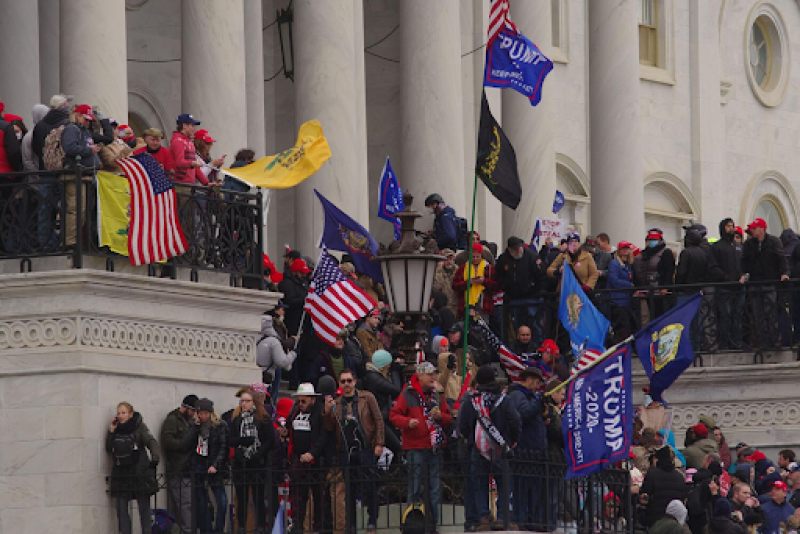Reports published last week by the Chicago Sun-Times, public radio station WBEZ and OCCRP, revealed the names of nine active-duty and 18 retired police officers who were found in the records of the Oath Keeper organization. The leaders of this organization have been sentenced for their leading roles in the January 6, 2021, attack on the U.S. Capitol.
In response to this revelation, Chicago's new police superintendent, Larry Snelling, pledged on Wednesday to conduct a thorough investigation.
Chicago's Community Commission for Public Safety and Accountability, on Thursday, took it further and requested the independent inspector general of Chicago, Deborah Witzburg, separately review how the police department has handled Oath Keepers within its ranks.
Last week's collaborative investigation followed a similar partnership between OCCRP and the Project on Government Oversight in December, which revealed that over 300 individuals listed as Oath Keeper members were employed by the Department of Homeland Security or one of its affiliated agencies.
The story highlighted the absence of a clear policy regarding membership in extremist organizations within DHS, leading 65 lawmakers to write a letter to DHS Secretary Alejandro Mayorkas. Citing reporting by OCCRP and POGO, they inquired whether DHS had referred anyone on the membership list to the FBI and if it planned to establish a clear prohibition on membership in extremist groups, similar to the policy within the Department of Defense.
As of late October, the agency had not provided an official response.
Rep. Dan Goldman, D-NY, who authored the letter, declined to comment on the lack of a response from DHS.
However, one signatory of the letter, Chicago Democratic Rep. Mike Quigley, wants answers from DHS in the aftermath of last week’s collaborative investigation.
"There is no doubt more should be done to root out extremism across all levels of government. I have reached out to DHS to inquire about their efforts to identify and remove extremists from their ranks, and I am hopeful their response will guide us toward the most effective next steps," he told OCCRP.
The congressman suggested the matter is personal for him.
"I was on the House floor when insurrectionists broke through the chamber doors on January 6th. It was one of the darkest days for our nation, and one which I will never forget,” he said. “Following months of investigation, one thing is clear: the Oath Keepers played a central role in the events of that day. All law enforcement, local and federal, should be unilaterally committed to the protection of the American people and the rule of law, not a personal far-right agenda."
The absence of federal guidance within DHS, which employs over 250,000 individuals and oversees various offices, including the Coast Guard, Secret Service, immigration, and border control agencies, is conspicuous when compared to the Department of Defense. Since 2012, the DOD has had explicit guidance prohibiting service members from actively promoting "supremacist, extremist, or criminal gang doctrine, ideology, or causes."
Retired FBI veteran Michael German believes that local police forces like Chicago's should focus on the criminal activities of the organization rather than its ideologies. German suggests not banning membership in groups like the Oath Keepers based on anti-government views but treating the Oath Keepers as what they are—an organized crime group.
"The recent convictions for sedition indicate the seriousness of the criminal activities they've been involved in. Therefore, any law enforcement affiliation with an organization engaged in criminal activities is problematic and needs to be addressed, no differently than association with any other criminal organization," said German, who now serves as a senior fellow at New York University's Brennan Center for Justice, a nonpartisan law and policy institute.
"You wouldn't want a police officer who openly acknowledges membership in the Italian mafia or a street gang. Such affiliations would automatically be recognized as a danger to the community," he added.



